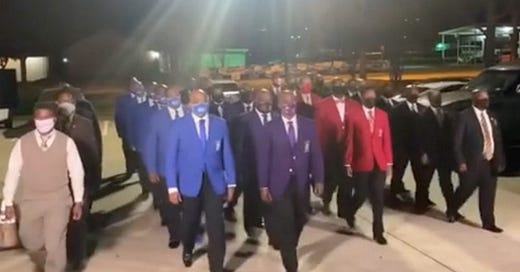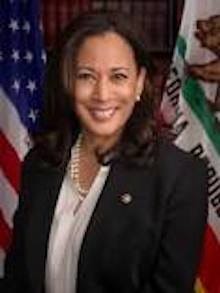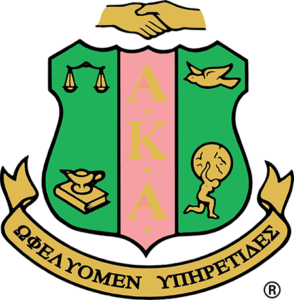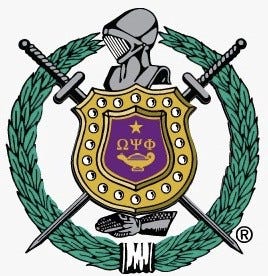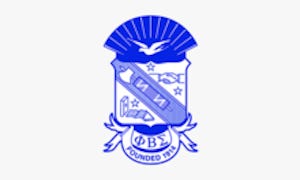Who Are The “Divine Nine”?
Learn About HBCUs and the Black Fraternities and Sororities for Social Change
Learn About HBCUs and the Black Fraternities and Sororities for Social Change


After the selection of Senator Kamala Harris (D-CA) as the Vice-Presidential candidate by former Vice-President Joe Biden, two previously relatively unknown acronyms crept into the American lexicon: HBCUs and the Divine Nine.
Historically Black Colleges and Universities
Some people were already familiar with “HBCU,” which stands for Historically Black Colleges and Universities. There are currently 101 colleges in the United States that are identified by the US Department of Education as Historically Black Colleges and Universities (HBCUs). HBCU institutions in the United States offer doctoral, juris doctor, and medical degree programs, master’s programs, bachelor’s degree programs, and associate degrees.
Most HBCUs were established in the Southern States after the American Civil War. Prior to the 1964 Civil Rights Act, most of the PWI (primarily white institutions) of higher learning either refused to enroll African-Americans at all or severely limited the number of Black students per year. In the late 19th century, if former slaves and their children managed to graduate from 8th grade, they were considered very lucky. Leaders such as Booker Taliaferro Washington was a key proponent of African-American businesses and one of the founders of the National Negro Business League. His base was the Tuskegee Institute, a historically black college he founded in Tuskegee, Alabama. A former slave, Washington called for Black progress through vocational education and entrepreneurship, rather than trying to challenge directly the Jim Crow segregation and the disenfranchisement of Black voters in the South.
In the North meanwhile, William Edward Burghardt Du Bois, an American sociologist, socialist, historian, civil rights activist, Pan-Africanist, author, writer and editor who grew up in a relatively tolerant and integrated community in Massachusetts, and after completing graduate work at the University of Berlin and Harvard, where he was the first African American to earn a doctorate, he became a professor of history, sociology and economics at Atlanta University. Dr. Du Bois was one of the founders of the National Association for the Advancement of Colored People (NAACP) in 1909. Dr. Du Bois insisted on full civil rights and increased political representation, which he believed would be brought about by the African-American intellectual elite. He referred to this group as the “Talented Tenth” and believed that African Americans needed the chances for advanced education, often at PWIs, to develop its leadership for the future.
Booker T. Washington and W.E.B. DuBois were both educators, but they differed greatly on the type of education they believed would be most beneficial to Black people in the late 19th and early 20th centuries.
One of the most famous HBCUs is Howard University, which was founded in 1867. It is located in Washington, D.C., and is named after Civil War Union General Oliver Otis Howard, who was commissioner of the Freedmen’s Bureau and put in charge of integrating former slaves into American society. Senator and Vice-President Elect Kamala Harris is an alumnus of Howard University (“HU”), and credits her matriculation there with helping to shape her worldview, personally and professionally. Graduates of Howard are understandably very proud, but graduates of all HBCUs are equally proud of the unique educational experiences provided at their schools for African Americans.
The Divine Nine BGLO
Most African Americans attended HBCUs for their higher educational opportunities in the early 20th century, and while there, started developing their own versions of fraternities and sororities. Most fraternities and sororities at PWIs concentrated on undergraduate chapters, and focused on philanthropic activities, hosting parties, providing instruction on etiquette, dress, and manners, and creating networking opportunities for their newly graduated members.
Fraternities and sororities, in general, are an outgrowth of the secret societies and trade and benevolent associations of the 18th century. The tradition of using Greek letters to designate the organizations came from the belief that Greece was the ancient center of knowledge and education.
For African-Americans, however, fraternities and sororities were founded primarily to provide services in the areas of social justice, public service, Civil and women’s rights, and networking opportunities at both the undergraduate level and the post-graduate arena, in addition to the usual activities of white groups. Black fraternities and sororities are now called “Black Greek Letter Organizations” (BGLO), primarily because of the recognition that some of the earliest civilizations and centers of learning were first established in Africa and the Middle East, and then were imitated in Greece.
From 1906 to 1966, five Black fraternities and four Black sororities were established, and all of them still exist and flourish today. Because there are nine organizations, they are affectionately called the “Divine Nine,” although the official umbrella organization for the group is the National Panhellenic Council. Each Black Greek Letter organization was founded during a time when African Americans were denied the equal rights and privileges most other Americans enjoyed, and even today the primary mission of each of the Divine Nine is to bring about justice and change by developing social programs that bring about positive changes in the Black community.
Each BGLO is different, but they are also very similar. Unofficially, the members of each organization have different signs and symbols and specialize in unique variations of dancing (called “stepping”) that remind people of the African roots. Although each group believes it is the “best,” but that is unofficial, and in actuality, they all are working towards the same goals.
Vice president-elect Kamala Harris is a member of Alpha Kappa Alpha Sorority, and members of that group are especially proud that one of their members has been elected to the 2nd-highest position in the land. However, all members of the Divine Nine are equally proud, and during the election season, all members banded together to get out the vote in their respective communities. Since Black Americans and BGLO have been fighting for voting rights since their founding and up through the current time, working to GOTV (Get Out The Vote) was a natural extension of what the groups were already doing for decades.
The national organizations are officially non-profit and non-partisan, so any work of local chapters and individual members of the BGLO was technically separate from the national headquarters of each organization. But the work of the Divine Nine was so instrumental in the success of the 2020 Democratic presidential election, President-elect Joe Biden officially thanked the Divine Nine during his acceptance speech on November 7, 2020.
The Nine Black Greek Letter Organizations
Here is basic information on each of the Divine Nine Black Greek Letter Organizations. Click the link to find out more about each fraternity and/or sorority and to see some of their most famous and celebrated members.
Alpha Phi Alpha Fraternity was founded in 1906 at Cornell University in New York and has undergraduate and graduate chapters nationally and internationally. They are the first and oldest BGLO fraternity to be founded in the 20th century. Their motto is: “First of All, Servants of All, We Shall Transcend All.” The Alpha Phi Alpha colors are Black and Gold.
Alpha Kappa Alpha Sorority was founded in 1908 at Howard University and has undergraduate and graduate chapters nationally and internationally. Their motto is: “By Culture and By Merit,” and their colors are Pink and Green. Vice President-elect Kamala Harris pledged AKA, the first BGLO sorority and the first founded at an HBCU, while an undergrad at Howard University.
Kappa Alpha Psi Fraternity was founded in 1911 at Indiana University — Bloomington and has undergraduate and graduate chapters nationally and internationally. Their motto is: “Achievement in Every Field of Human Endeavor,” and their colors are Crimson and Cream.
Omega Psi Phi Fraternity was founded in 1911 at Howard University, and has undergraduate and graduate chapters nationally and internationally. The first BGLO to be founded at an HBCU, their motto is: “Friendship is Essential to the Soul,” and their colors are Purple and Gold.
Delta Sigma Theta Sorority was founded in 1913 at Howard University and is the largest Black Sorority with almost 1,000 national and international undergraduate and graduate chapters. Delta Sigma Theta was the only Black Sorority to participate in the Women’s Suffrage March in Washington, DC, on March 3, 1913, less than two months after its founding. Their motto is: “Intelligence is the Torch of Wisdom,” and their colors are Crimson and Cream. I pledged Delta Sigma Theta as an undergrad at Eastern Michigan University.
Phi Beta Sigma Fraternity was founded in 1914 at Howard University and has undergraduate and graduate chapters nationally and internationally. Their motto is: “Culture for Service ad Service for Humanity,” and their colors are Blue and White. Phi Beta Sigma is the only Black Fraternity to be constitutionally bonded to a Black Sorority, Zeta Phi Beta, which the fraternity helped to initiate.
Zeta Phi Beta Sorority was founded in 1920 at Howard University and has undergraduate and graduate chapters nationally and internationally. Their motto is: “A Community-conscious and Action-oriented Organization,” and their colors are Blue and White. They are the constitutionally bonded sister organization to Phi Beta Sigma Fraternity, which initiate the sorority at its inception.
Sigma Gamma Rho Sorority was founded in 1922 at Butler University in Indianapolis, Indiana, and has undergraduate and graduate chapters nationally and internationally. Their motto is: “Greater Service, Greater Progress,” and their colors are Blue and Gold. It is the only BGLO sorority to be founded at a predominately white institution (PWI).
Iota Phi Theta Fraternity was founded in 1963 at Morgan State University and has undergraduate and graduate chapters nationally and internationally. The twelve founding members were older, many were military veterans, and had families with small children. The fraternity intentionally associated itself with the Civil Rights and Pan-African Movements of the 1960s. Their motto is: “Building on Tradition, Not Resting Upon One,” and their colors are brown and gold.
About Me
I am a native Detroiter, a wife, mother, grandmother, and homeowner, and I am recently retired and loving it. I would love for you to follow me on my personal Facebook and on my personal Instagram. Any opinions expressed in this publication are my own.
I invite you to read the stories in my other publications: Pam’s Passions, Your Business Your Brand Creatively, and Detroit Ink Publishing.

